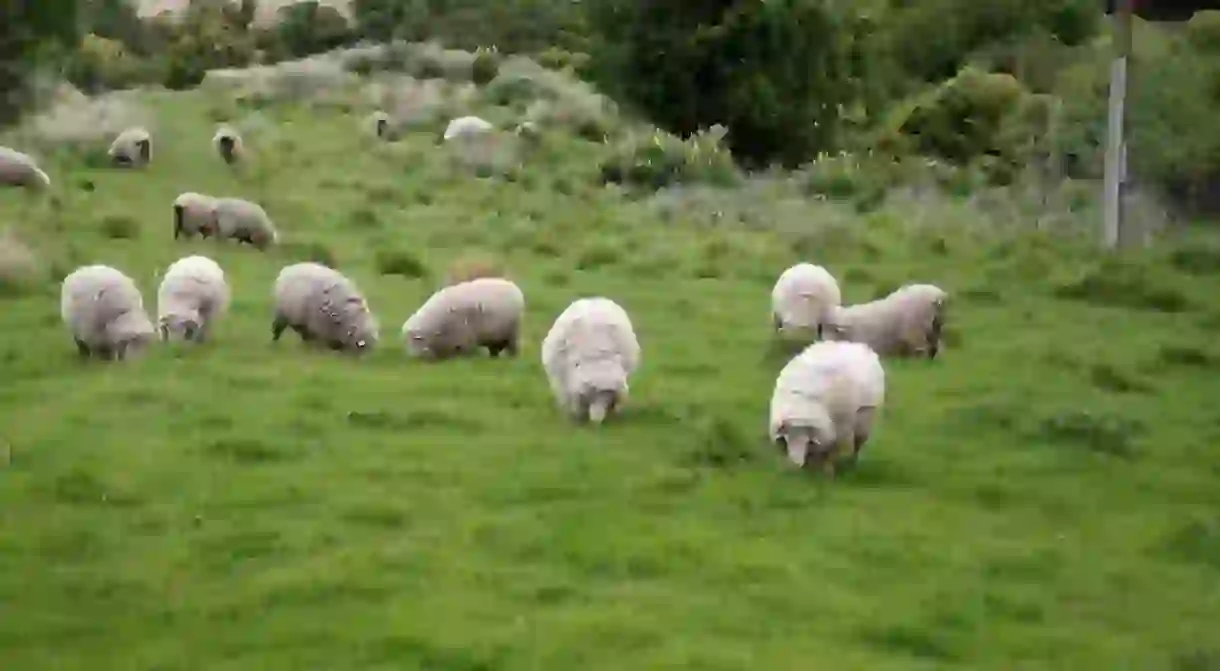11 Things You Only Learn When You Have Moroccan Friends

Having Moroccan friends is a fascinating experience, albeit sometimes difficult due to cultural differences. They’ll switch between languages mid-sentence, offer you grilled sheep’s brain and are late most of the time, but they’re still some of the warmest, friendliest people you’ll meet. Here are 11 things you only learn when you have Moroccan friends.
Drinking tea is a daily habit
Fresh mint tea is the traditional beverage of Morocco and it is consumed on a daily basis, either with breakfast, lunch, dinner or all of the above. It’s very easy to make – mixing tea, mint leaves, hot water and tons of sugar – and it’s absolutely delicious. Seeing as it’s so vastly popular, you’ll certainly learn the importance of mint tea in Moroccan culture, and perhaps adopt it too!

Most Moroccans have a vaccination mark
You’ll probably noticed a scar on your Moroccan friends’ upper left arm. This is the result of a BCG vaccination that’s given to babies when they’re about six months old and which prevents tuberculosis. While some might think that only Moroccans have it, a lot of people in other countries with risk of TB have the same kind of scar.
Couscous is eaten every Friday
Couscous is a staple dish eaten across North Africa and is typically made from tiny, steamed durum semolina balls and stewed vegetables or meat. It is tradition to eat it every Friday – so you know what to expect if you’re invited to dinner on a Friday night. It might be too much to eat it every week, but it is very tasty.

You’ll learn how to wear traditional attire
Traditional clothing in Morocco is a little complex at times, especially women’s clothing. The most popular dress in Morocco is the takchita, a beautiful ensemble that women usually wear at weddings, baby showers and other big events. A takchita consists of two parts and the accessories. The principal dress is usually of one colour, while the second layer is a mesh version of the latter. Accessories are mandatory when wearing these kinds of dresses, such as gold belts, necklaces, bracelets, earrings and more.
Sheep are an integral part of Moroccan society… and cuisine
During Eid al-Adha, every Muslim family sacrifices a sheep, to then cook it and eat it with the whole family. You might think that parts of the sheep – such as the brain, eyes, tongue or testicles – get thrown away, but not here! In Morocco, every part is important and edible, and many enjoy grilled brains.

You’ll learn all the cool card games
There are a couple of cool Moroccan card games, like Kant Koupi, that can be played in groups, from two to five people, making for a fun activity among friends. Ronda is another popular one, often played on hot summer days by the beach, offering a welcome break from technology.
Many products are called by their brand name
In Morocco, a lot of things are called by the brand name, due to the fact that Darija, the Moroccan dialect, is a mixture between Arabic and French. Facial tissues are called Kleenex, yogurt Danone, correction fluid Tipp-Ex, and even sanitary pads are called Always.

Most people cross the street without even looking
Morocco is quite a hectic country when it comes to driving, so inevitably it’s also is crazy for pedestrians. Here, people cross the street at any given point in the road, as crosswalks are rarely used. The government is trying to improve this situation by ticketing jaywalkers, but it will take time for people to adapt.
Going to the pharmacy before going to the doctor is a must
Almost all Moroccan people go to their pharmacist if they are feeling unwell and grab the necessary medication. Unless it’s an emergency or something out of the ordinary, the pharmacy is the place to go first – and not the doctor – due to the fact that it’s quick and effective.

They’re multilingual
Most Moroccans can speak three languages, sometimes even more. Some of the most commonly used languages are French, Arabic, Spanish and English. This can make for tricky conversation if you’re not familiar with all of them, but your ear will soon adjust.
They’re always late
Unfortunately, you will most likely learn this the hard way, by having to wait for friends for 15, 30, sometimes even 60 minutes. You might complain and get irritated but it probably won’t change much – a relative perception of time is just part of the culture. They probably expect you to be late as well, so take your time.














